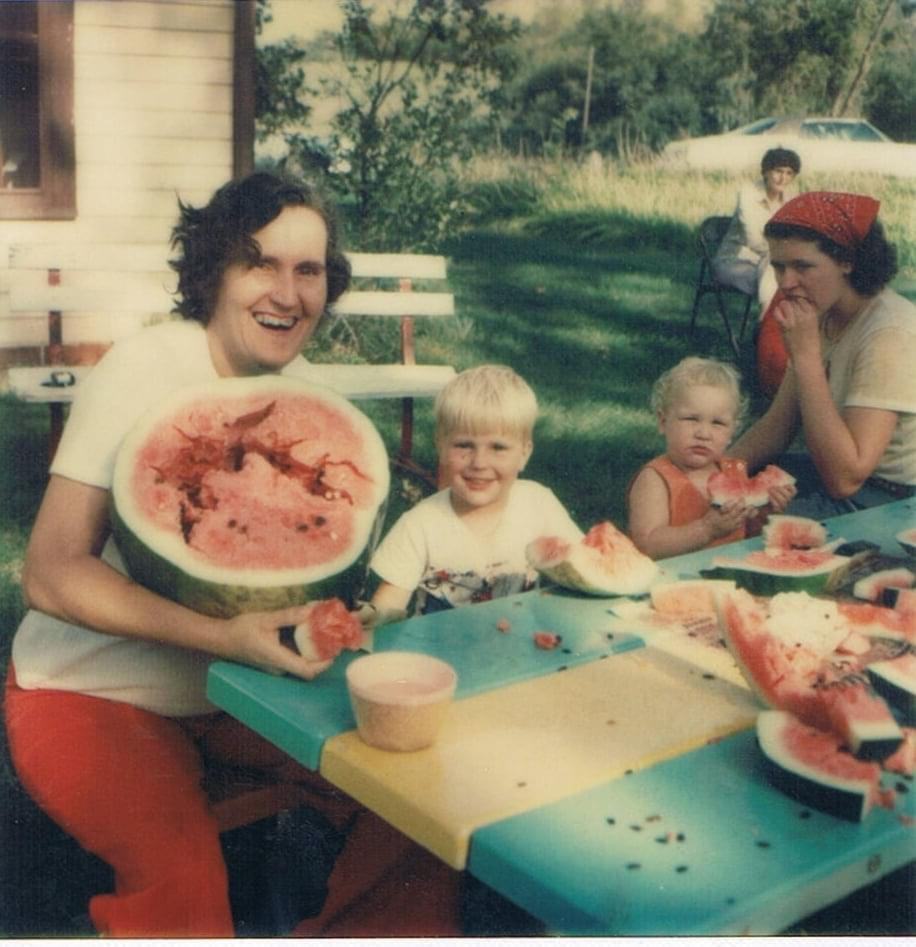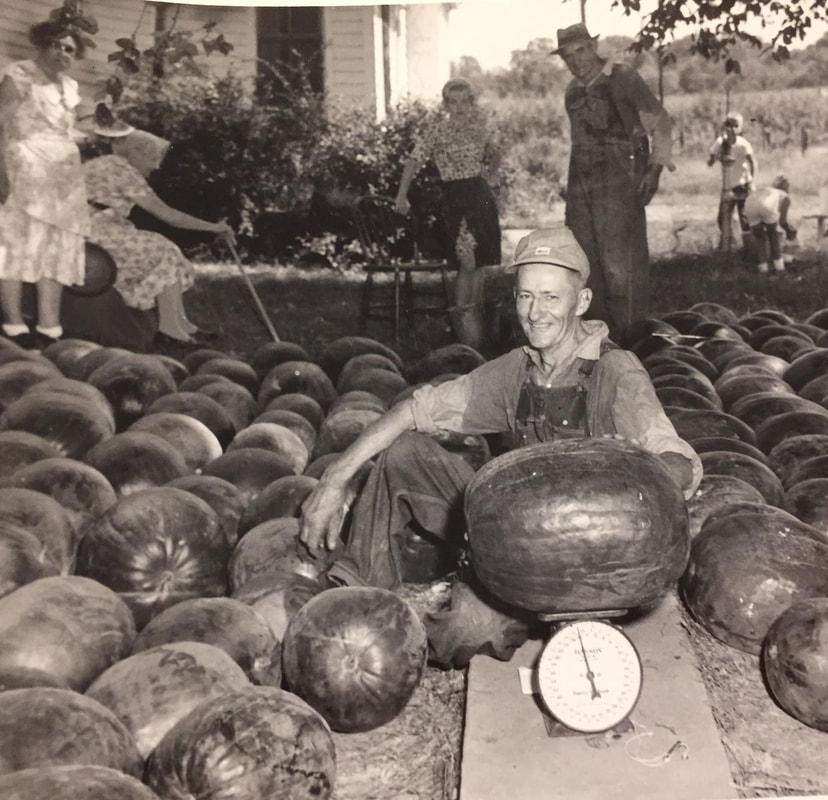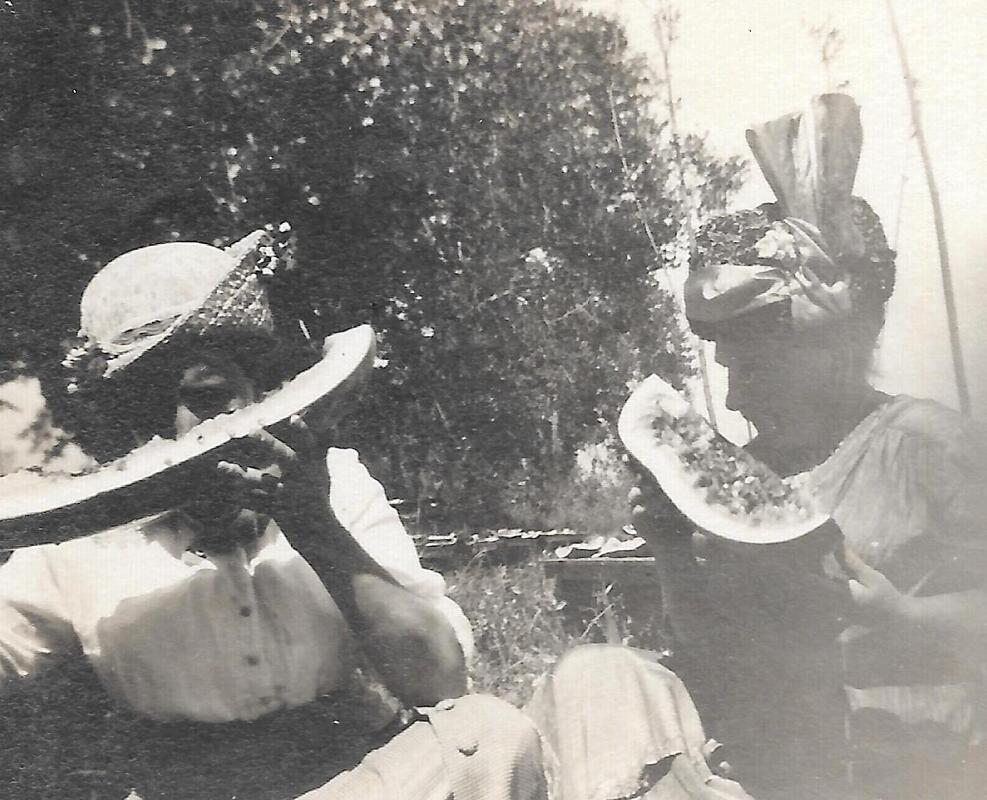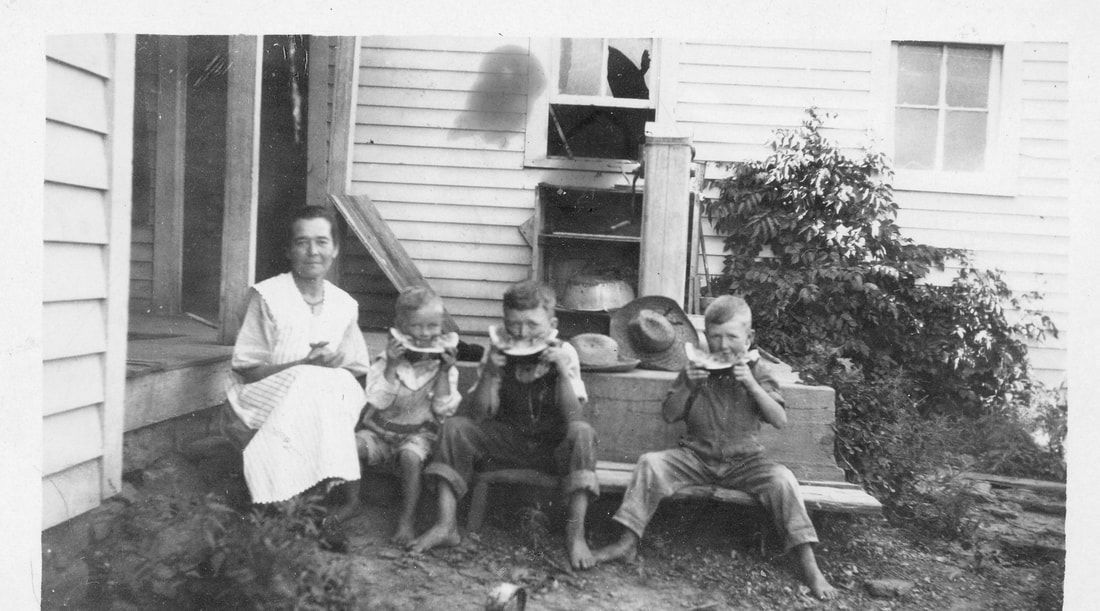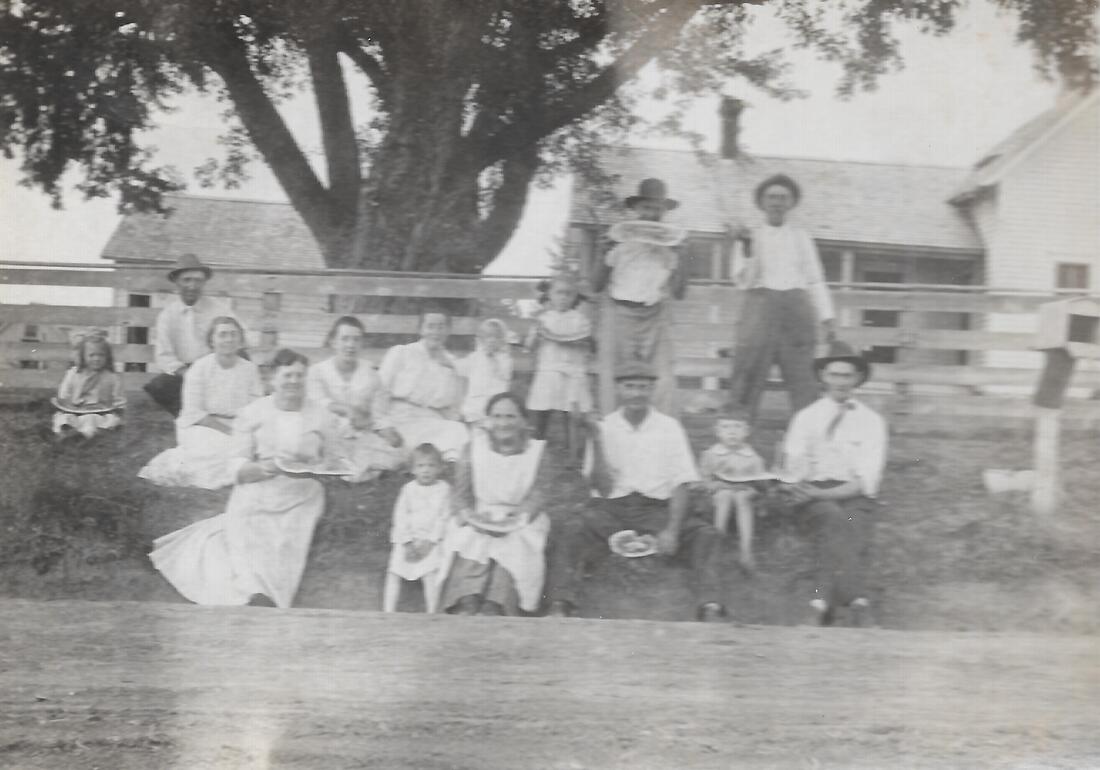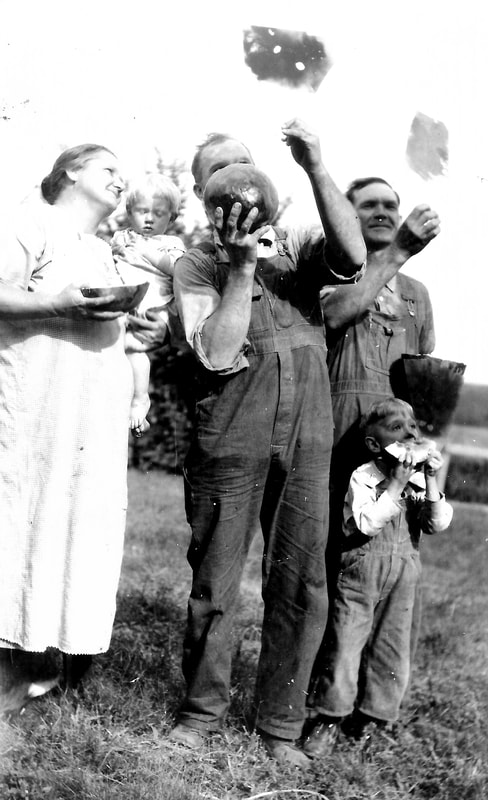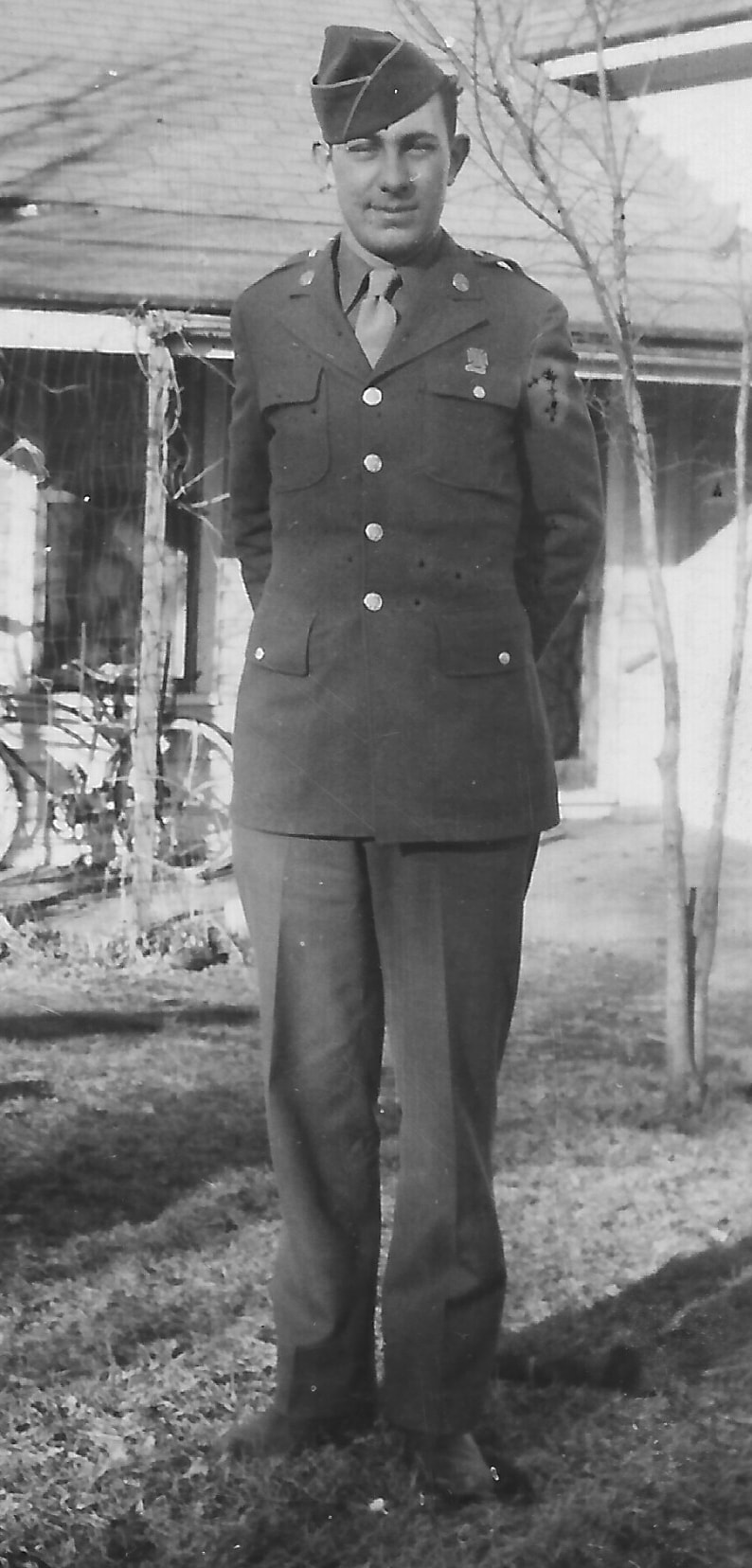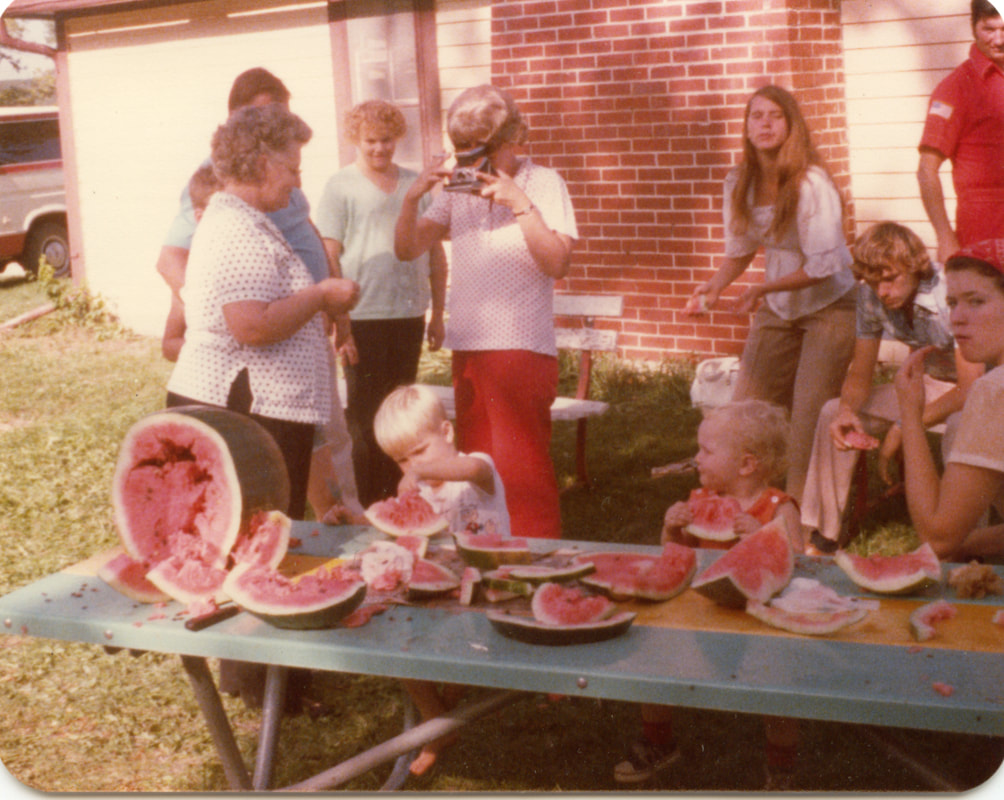watermelon
A LITTLE STORY
Robert Warren stopped by the museums in 2017. When he was a kid, his family lived in a boxcar at the railroad's pump station. His dad was in charge of the pumps. Robert remembered an incident. He and George Slaughter had gone to steal some water melons at a patch north of town. It was 1945.
We plugged a few and found some of them not ready yet, but we did find a couple of nice ones. We took them and walked back toward Table Rock, walking along the railroad track.
The town siren went off!
We knew we were done for. The word was out about water melon thieves, and we were going to jail.
We threw those watermelons down and ran, and I do mean we ran.
We just knew we were finished.
Turned out that water melon stealing wasn't as important as we thought. The siren was going off to announce the end of the war!
from "a home in the heartland," by helen howe saylor
In this elegantly-written memoir written in 2011 (and available on Amazon), Helen Howe Saylor tells the story of her Table Rock roots. She mentions watermelon....
After the Civil War, my great-grandmother’s brother, Joseph Pepoon, and his
wife, their sister, Eunice, who was married to Eli Boone, and another friend who had
been injured in the war, set out for Nebraska. That was in the winter of 1867, a strange
time of year to travel from Illinois, across Iowa, and to Nebraska. They trudged through
snow, ice and mud; they needed to get to their new land in time to plant the crops.
They arrived March 7, 1867, just a week after Nebraska became a state.
Nebraska is a land of few trees other than evergreen and cottonwood. Neither is
ideal for building houses, and early settlers built homes of sod...
Joseph Pepoon and Eunice Pepoon Boone were optimistic about farming: they planted
corn and watermelon.
In fact, Joseph and Eunice were so happy in their little corner of
southeast Nebraska, they wrote their brother Theodore, T.W., and sister, Mary Pepoon
Howe, encouraging them to come West.
what happened when he was discharged
Lawrence Petrashek served in the Army in World War II. In telling the story of his military service to Sharla Sitzman, he described his discharge from the service and his path home. It started with watermelon.
When we docked at Sacramento, there was a band there and a lot of people waving stuff, and music playing. So we got off there and they loaded us in buses and hauled us to San Francisco and there they put us up in a warehouse, with |
